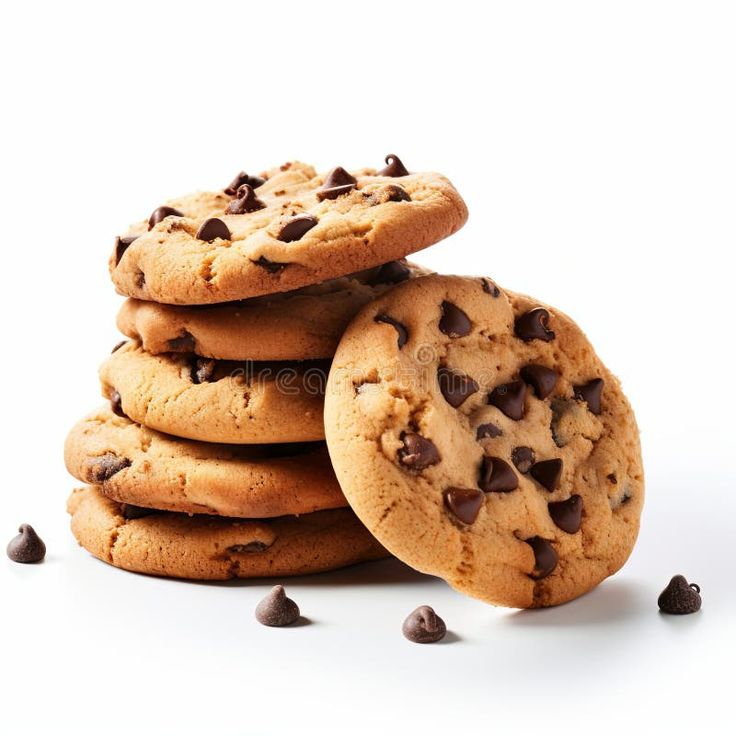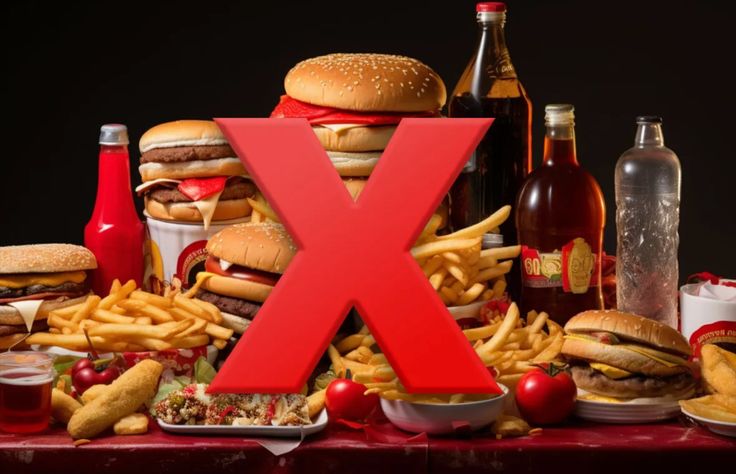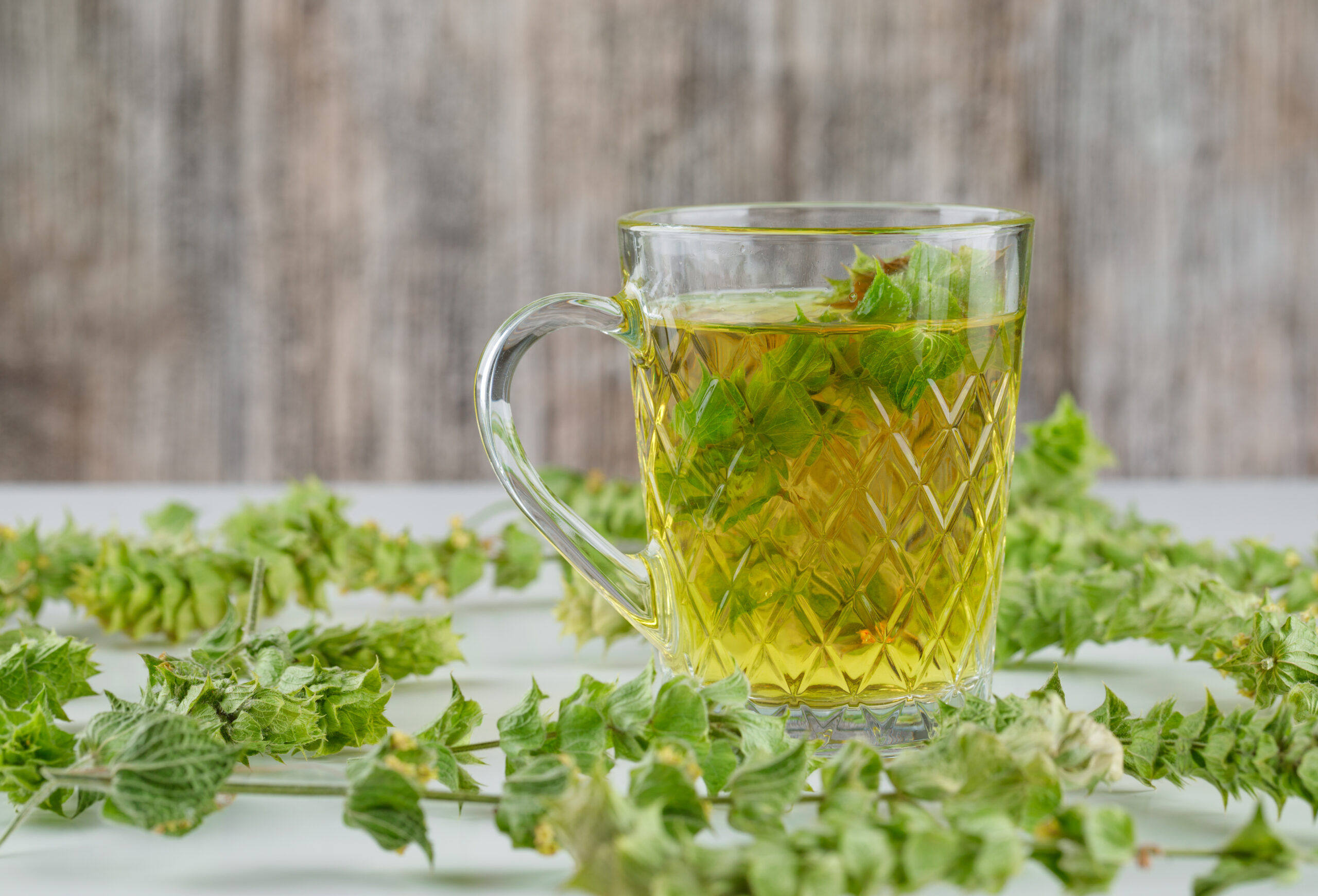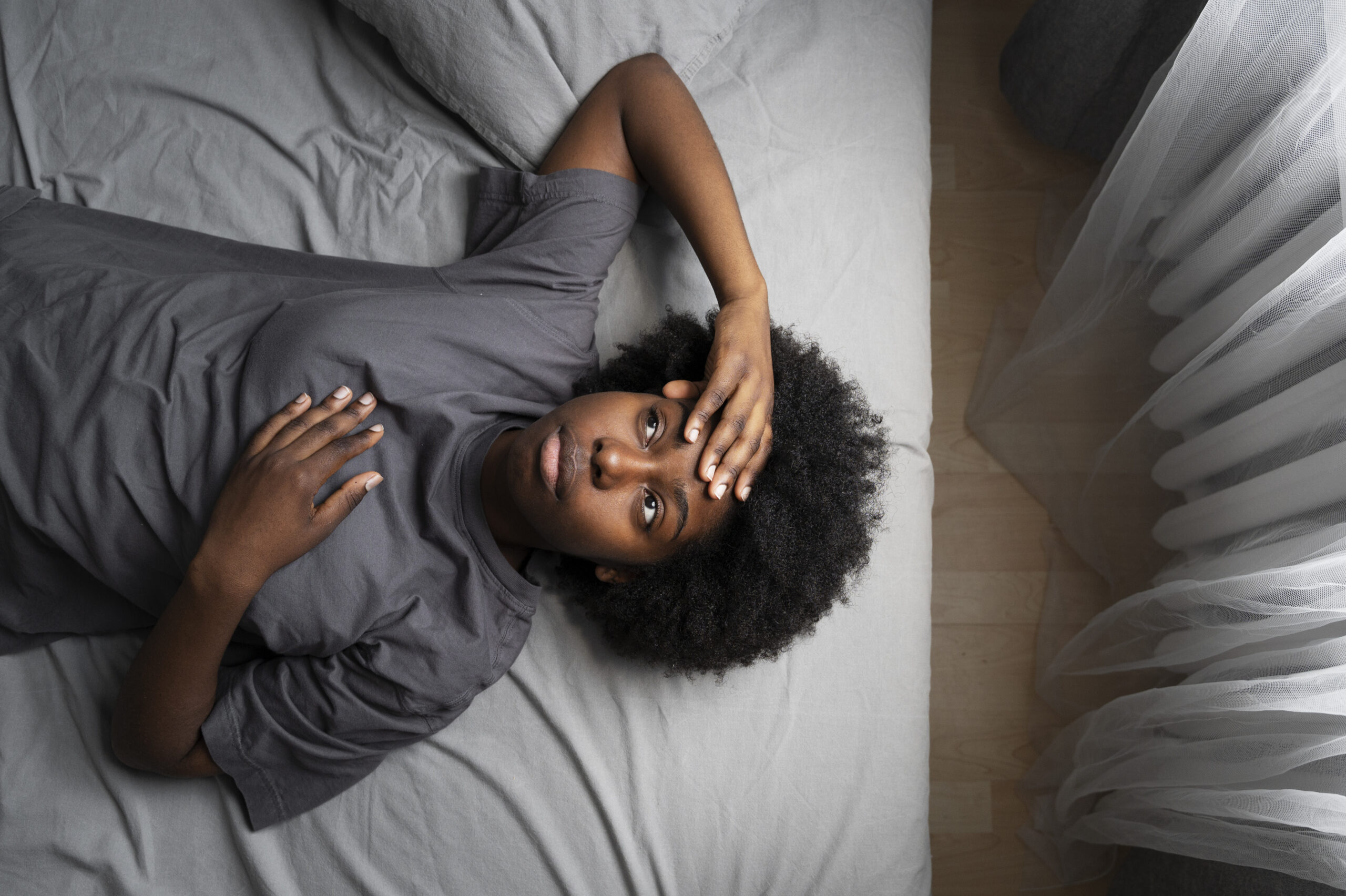foods to avoid before bed Getting enough sleep is vital for your body to rest, repair, and energize, but did you know that your pre-sleep eating habits could also be a major player in your sleep quality? While some foods encourage feelings of calm and relaxation, others do just the opposite: they cause restlessness and indigestion or even nightmares. Sadly, there are many people who unknowingly eat foods that interrupt their sleep cycles and make it difficult to fall or stay asleep at night.
In this article, we’re going to share 8 common foods you should never eat before bed. Each food will be noted with research and practical science on how it impacts your body during your sleep. We’ll also share a few useful alternatives and healthy tips to keep your late-night eats from ruining your sleep.
If you have been having a hard time or waking up tired, changing your evening eating habits may be the fix. Let’s take a close look at the most sleep-disruptive foods and why they do not belong on your plate before bed.
click here to read more posts like this
10 Natural Foods That Help You Sleep Quickly
1.Caffeinated Foods and Beverages
Caffeine is a serious stimulant that can remain in your system for hours after you consume it. It blocks the brain chemical adenosine that allows you to get drowsy, making falling asleep difficult. Most people know not to drink coffee before bed, but caffeine can also hide in chocolate, energy drinks, sodas, and certain teas.
Why it disrupts sleep:
Caffeine can increase alertness, increase heart rate, and delay the release of melatonin (the hormone responsible for regulating our sleep). Consuming caffeine as far as 6 hours before bedtime can decrease sleep time by a full hour or more!
Scientific insight:
According to a study published in the Journal of Clinical Sleep Medicine, caffeine consumption at any time up to 6 hours before bedtime significantly affect sleep duration and sleep quality.
What to do instead:
Choose caffeine-free herbal teas, such as chamomile or rooibos, and reject chocolate and sodas after mid-afternoon. And don’t forget to check the fine print for hidden sources of caffeine!
2.Spicy Foods
There are tasty spicy meals, but they are some of the least desirable meals for a late dinner. Foods that contain chilli, pepper or hot sauce can irritate your stomach and increase your body temperature.

Why It Disrupts Sleep:
Spicy foods elevate core body temperature, which hinders your ability to fall asleep; when you fall asleep your body temperature drops. In addition, spices can cause reflux or heartburn which can make lying down uncomfortable.
Scientific Insight:
Research shows that consuming spicy meals later in the day increased sleep latency (the time taken to fall asleep), and increased nocturnal awakenings due to reflux.
What to do instead:
Choose mild flavors instead of a spicy sauce for dinner. If you enjoy spicy food, have your spicy meal for lunch or not at dinner.
3.Fatty or Fried Foods
Fatty foods, like hamburgers, fried chicken, and cream sauces give your digestive system extra stress as they take longer to digest than other foods and your body is trying to digest food, instead of concentrating on preparing for sleep.
Why It Disrupts Sleep:
Heavy fats may cause a delay in gastric emptying, promote bloating, cause reflux, and discomfort lying down.
Scientific Insight:
Research from the Nutrients Journal reveals that eating high-fat meals is correlated with poor sleep quality and further poor quality if an individual suffers from sleep apnea or acid reflux disease.
What chairman recommendation:
provide meals that are grilled, baked, or steamed that are made with lean proteins and veggies. Be sure to not order Fast Food or fried food dinners in the evening.
5.Sweets
Cookies, candies, cakes, and sugar cereals can seem harmless, but they spikes your body’s blood sugar and disrupts your sleep cycles.

Why It Messes With Your Sleep:
Increased sugar increases the cortisol,(condensed ordinal stress hormone) and dropping blood sugar causes cortisol jumps which wakeus up in the middle of the night.
Scientifc Insight:
A study published in The American Journal of Clinical Nutrition examined the effects of diet on sleep. It showed that higher sugar diets are associated with lighter, less restorative sleep, and more awakenings throughout the night.
What to Prescott #4:
If you need a little sweet treat before bed, I recommend a small piece of any kubota fruit, or a handful of nuts.
5.Alcohol
Alcohol is often mistakenly thought of as a sleep aid. In fact, it does make you sleepy, but it reduced the quality of your sleep later in the night.

Why It Interferes with Sleep Alcohol decreases the amount of REM (Rapid Eye Movement) sleep you have, which is the most restorative sleep.
Alcohol is also a diuretic, which means that it increases your chances of having to wake up to urinate in the night.
Scientific justification According to the Sleep Foundation, alcohol decreases the time spent in REM sleep and increases the likelihood of waking up during the second half of the night.
What to do instead
If you really enjoy having an evening drink, limit yourself to one 1 drink and consume it at least 3-4 hours before bedtime. In all honesty, if you want to really sleep well, limit your evening drink altogether, and consider herbal teas or warm milk as an alternative instead.
6.Citrus Fruits
Oranges, grapefruits, lemons, are all good sources of vitamin C, but they are also acidic. So, while they are great to get you jump-started in the morning, they can be troublesome before bed, especially for some.
Why It Interferes with Sleep The acidity can trigger acid reflux or cause heartburn symptoms when you lay down too soon after consuming, even if it’s not bothersome in the moment. Scientific justification For example, studies in gastroenterology have indicated that acidic fruits can often be culprits in nocturnal reflux and disrupt quality sleep. What
7.Large Servings of Protein
While protein is a necessary source of fluid and energy replenishment for muscle recovery, eating a large serving right before bed isn’t going to help you sleep!
Why It Disrupts Sleep:
Eating a mass amount of protein takes time to digest, and requires a lot of work from your body to digest. When you have to work to digest, your metabolism increases, and you can find yourself feeling overly active when your body needs to be winding down.
Scientific Reason:
Nutrition journals report that large portions of meat or protein-rich foods before bed can elevate body temperature and decrease sleep efficiency and total sleep time.
What to do instead:
Limit eating protein rich meals to earlier times in your evening. If you are still hungry before bed try to eat a smaller snack like Greek yogurt, or a few select almonds.
8.Carbonated Beverages
Carbonated drinks are often delicious but can lead to bloating, gas, and stomach discomfort: and this would be the last thing you want while sleeping.
Why It Disrupts Sleep:
Carbonated beverages contain bubbles in the liquid that take up space in your stomach, and as a result of that will lead to pressure in the stomach, belching, and discomfort lying in a prone position with gas surrounding your stomach area.
Scientific Reason:
Research notes that carbonated beverages can enhance symptoms of (acid reflux) GERD root cause of discomfort particularly in the evening.
What to do instead:
Substitute with still water or herbal tea in the evening to drink cause. Steer clear of soda, sparkling water, and fizzy fruit drinks after dinner.
A. Why Meal Timing Matters for Better Sleep
When you eat can be as important as what you eat. Late-night eating interferes with your circadian biological clock, which regulates sleep and wake cycles. When you eat too close to bedtime, you force your body’s digestive system to stay active, prolonging your time to fall asleep because it delays melatonin production which promotes sleep.foods to avoid before bed
Key Points:
Your body needs at minimum 2-3 hours to digest food properly before you lie down.
If you eat a meal that is high in fat or protein, it is going to stay in your stomach longer to digest and it can raise your body’s temperature which can negatively impact sleep quality at night.
By eating an early dinner (before 7 PM), your body’s digestive system has time to rest and reset your sleep cycle for the night.foods to avoid before bed
Tips:
Keep dinner light, easy to digest, and watch portion control.
Stop snacking late at night (especially processed food).
If you feel you need a snack, choose foods that are high in tryptophan (like turkey, bananas, etc).
B. How Poor Sleep Affects Appetite and Food Cravings
Poor sleep isn’t just tiring—it also increases hunger. Inadequate sleep changes hormones, like the hunger hormone ghrelin, and the satiety hormone leptin. This change makes your body seek out high-calorie, sugar-rich foods.
Consequences for diet from lack of sleep:
Increased appetite for carbohydrates and sweets.
Reduce self-control, which makes it more challenging to abstain from junk food.
Lower metabolism and promote fat storage.foods to avoid before bed
Scientific Evidence:
Studies from Harvard Medical School show that poor sleepers (those sleeping less than 6 hours a night) are more likely to eat bad food and experience weight gain over time.foods to avoid before bed
Advice on how to find a healthy balance:
A minimum of 7-8 hours of sleep per night should be central for you.
Build meals around protein in the morning; this will help stave off cravings.
Make sure you are drinking a lot of water and not engaging in emotional eating because you are tired.
How Eating Late at Night Affects Your Sleep Cycle
Consuming food late at night is a habit many people have adopted—whether that is making a full dinner after work, a quick midnight snack or eating whilst watching TV in bed. However, what many people are not aware of is that eating late at night can fundamentally impact your natural sleep cycle and the quality of your respiratory experience.foods to avoid before bed
🧠 Your sleep cycle is not just about timing
The body has an inherent clock that regulates circadian rhythms, which impacts the sleep-wake cycle. Circadian rhythms are affected by light, temperature, and eating habits. When you eat too close to your normal bedtime, your body cannot enter “rest mode” and will instead enter “digestion mode,” producing cortisol, which will delay the release of melatonin (the hormone that makes you sleepy).foods to avoid before bed
Digestion is a “greatly” active metabolic process. It still requires energy from your body, as well as blood flow, and hormonal signals, all of which are in conflict with one another when anticipating sleeping. When your digestive system is still working hard at 10 or 11pm, your brain finds it harder to shut off to transition to deep restorative sleep.foods to avoid before bed
🛌 The Effects of Eating Late Night on Short Sleep
You may sleep badly after having eaten something within 2 hours of going to bed, including reduced REM sleep, waking frequently and even having vivid dreams or nightmares. Fatty meals and spicy foods, especially large amounts, tend to stay in the stomach longer and are harder for your body to process.foods to avoid before bed
Food also affects body temperature. As bedtime approaches, body temperature is supposed to be declining. But the digestion process raises core temperature, which confuses bodily sensors, making it difficult for your body to understand what it is supposed to be doing and sleep.foods to avoid before bed
🍕 What about Eating Before Bed?
Not all nighttime eating is bad, but what kind of food you eat and when is very important. For example, a small banana or small handful of almonds may actually help you sleep as they contain magnesium and tryptophan more than not helpful bedtime snacks. In contrast, eating pizza, fried chicken or chocolate just before bed probably results in your body being too alert to effectively recharge.foods to avoid before bed
Additionally, eating too late, or eating any foods also has links to acid reflex and indigestion especially when lying down. Thus, even when you awake in the morning, you often don’t feel rested. Sleeping shallow, and waking multiple times are often the result of when and how much food you have eaten.foods to avoid before bed
✅ How to Manage Timing
Eat dinner at least 2.5 to 3 hours before going to bed.
Avoid eating heavy meals or consuming caffeine before bed.
If you really
Conclusion: Why Your Nighttime Eating Habits Matter More Than You Think
After examining the eight worst foods to eat at bedtime and the research behind how late-night eating interrupts your sleep cycle, one emerging theme is clear: your diet is critical to your sleep health.foods to avoid before bed
foods to avoid before bed Usually, most people follow the standard sleep tips–turn off screens, use blackout curtains, go to bed at the same time, etc.–but they often miss one wildly relevant factor: what they eat and when. In truth, a big, fatty, spicy, or sugary meal right before bed can really ruin any good sleeping patterns by overriding your body’s natural signals to rest and recover.foods to avoid before bed
foods to avoid before bed For example, when you go to bed still digesting, your body is in a defensive mode rather than in a resting and recovering mode. So, when you jump into bed with a full stomach, your body just can’t kick in the melatonin, core temperature is increased because digestion creates heat, and your circadian rhythm is disturbed. All of these things will lead to restless and/or shallow sleep, multiple awakenings throughout the night, and, then, the next day, you can still feel fatigued even after eight hours of being in bed.
foods to avoid before bed We also can’t ignore the long term effects of poor night eating. Studies show poor sleep over time has caused weight gain, increased stress hormones like cortisol, poor mental focus, and increased risk of chronic diseases like heart disease and diabetes. Meaning, that late-night cheeseburger isn’t just negatively impacting tonight’s sleep – it could impact your health longer term too.foods to avoid before bed
foods to avoid before bed But the good news is that these effects are reversible. Even small changes of eating dinner at least 2–3 hours prior to bed, reducing caffeine and alcohol later in the evening and snacking better later in the evening may lead to much more restful sleep. Introducing fruit like bananas or kiwis, drinking sleep friendly tea like chamomile or a light protein snack can typically help you both fall asleep sooner and stay asleep longer.foods to avoid before bed
foods to avoid before bed Also, it is important that you really listen to your body. If you find that you are waking refreshed, sluggish, or your mornings include sugar cravings, it may not be your alarm clock or your recipe for chocolate cake faulting your wake time. Being aware of what you ate the night before by recording a sleep journal that includes energy level, food intake, as well as wake time can help you make better decisions for getting a better night sleep.foods to avoid before bed
foods to avoid before bed Then there is the psychological aspect of eating. Many people are simply snacking at night for boredom, stress, or for emotional triggers. Being aware of your triggers is important as well as changing your habit to a better option such as meditation, reading, or warm showers which improve sleep hygiene and physical/mental well-being.foods to avoid before bed
foods to avoid before bed In closing, your journey doesn’t begin in your bedroom, rather, it begins in your kitchen. By eliminating, or reducing, the list of eight foods we discussed above and focusing on meal timing, and being aware of late night cravings, you can turn your sleepless nights into restorative nights.foods to avoid before bed
foods to avoid before bed You owe yourself a better night of sleep. More often than not, a better night of sleep starts with simply a better bite before bed.foods to avoid before bed





2 Comments on “7 Foods to Avoid Before Bed for Better Sleep”